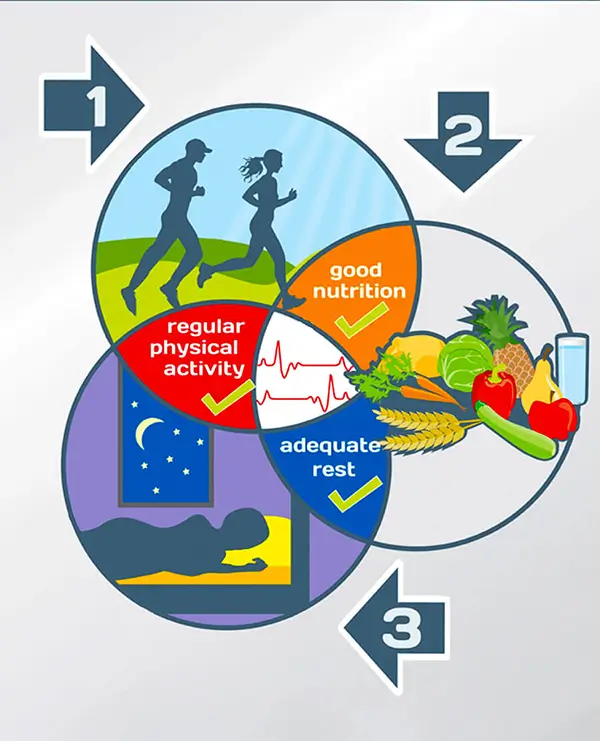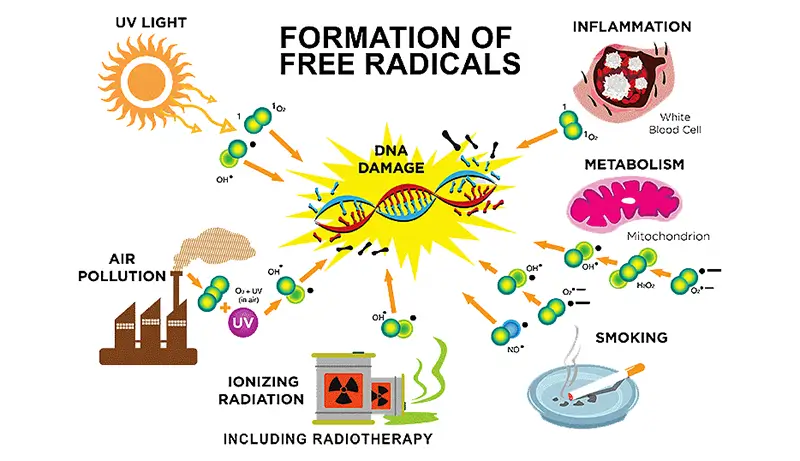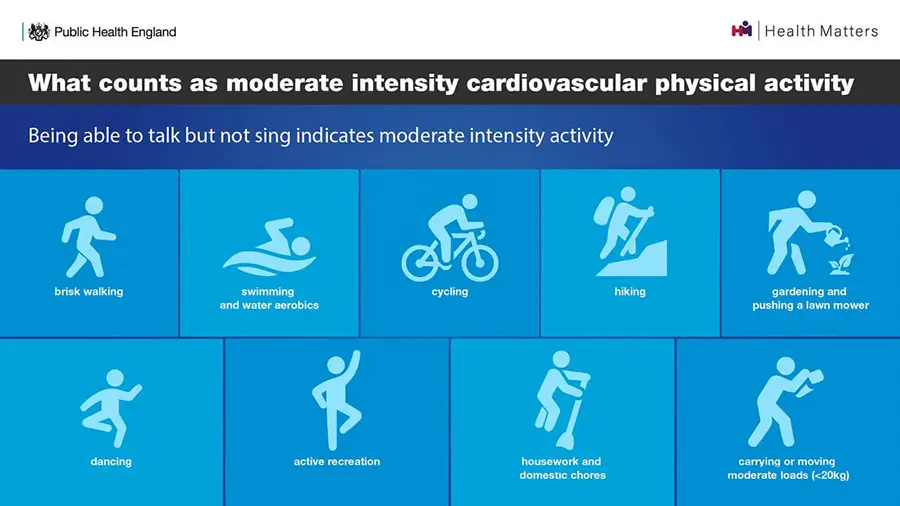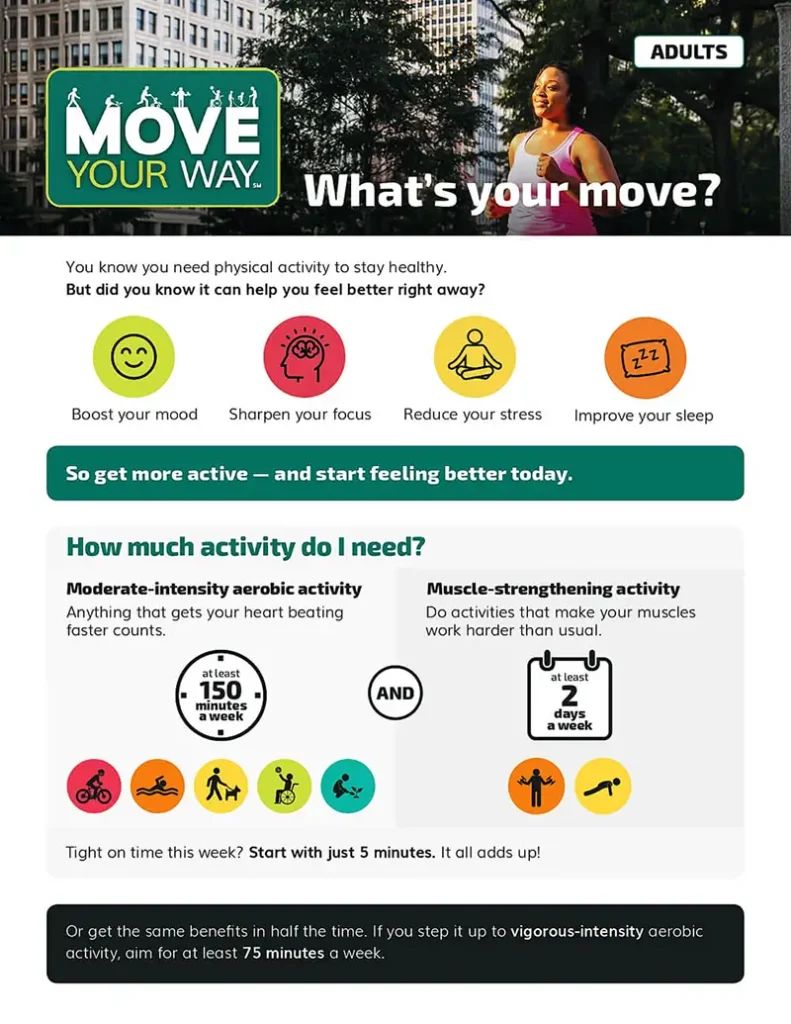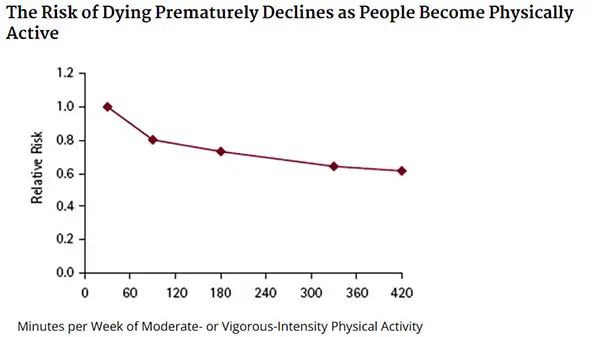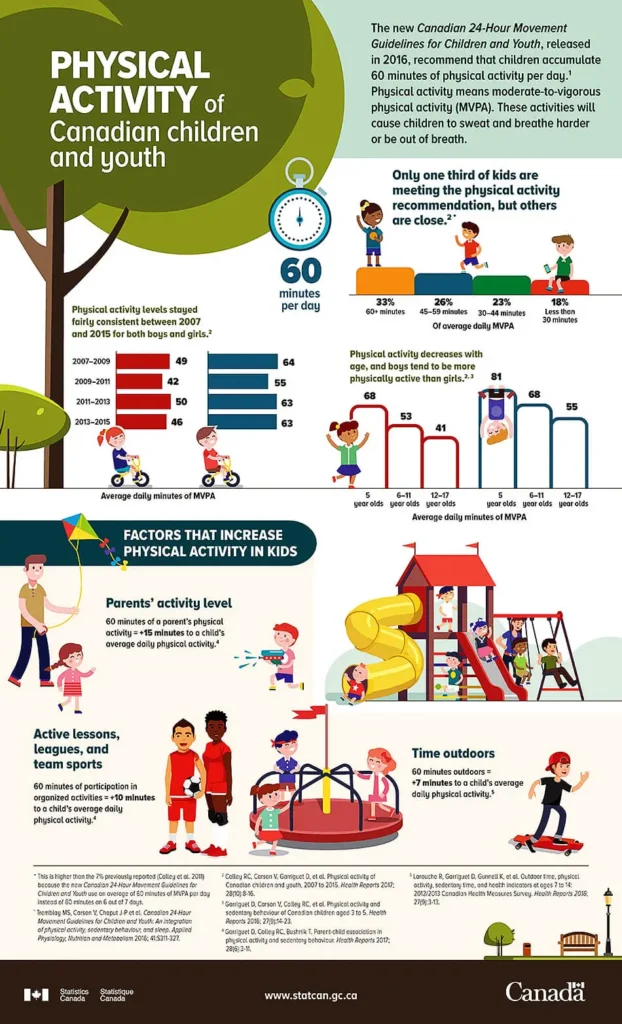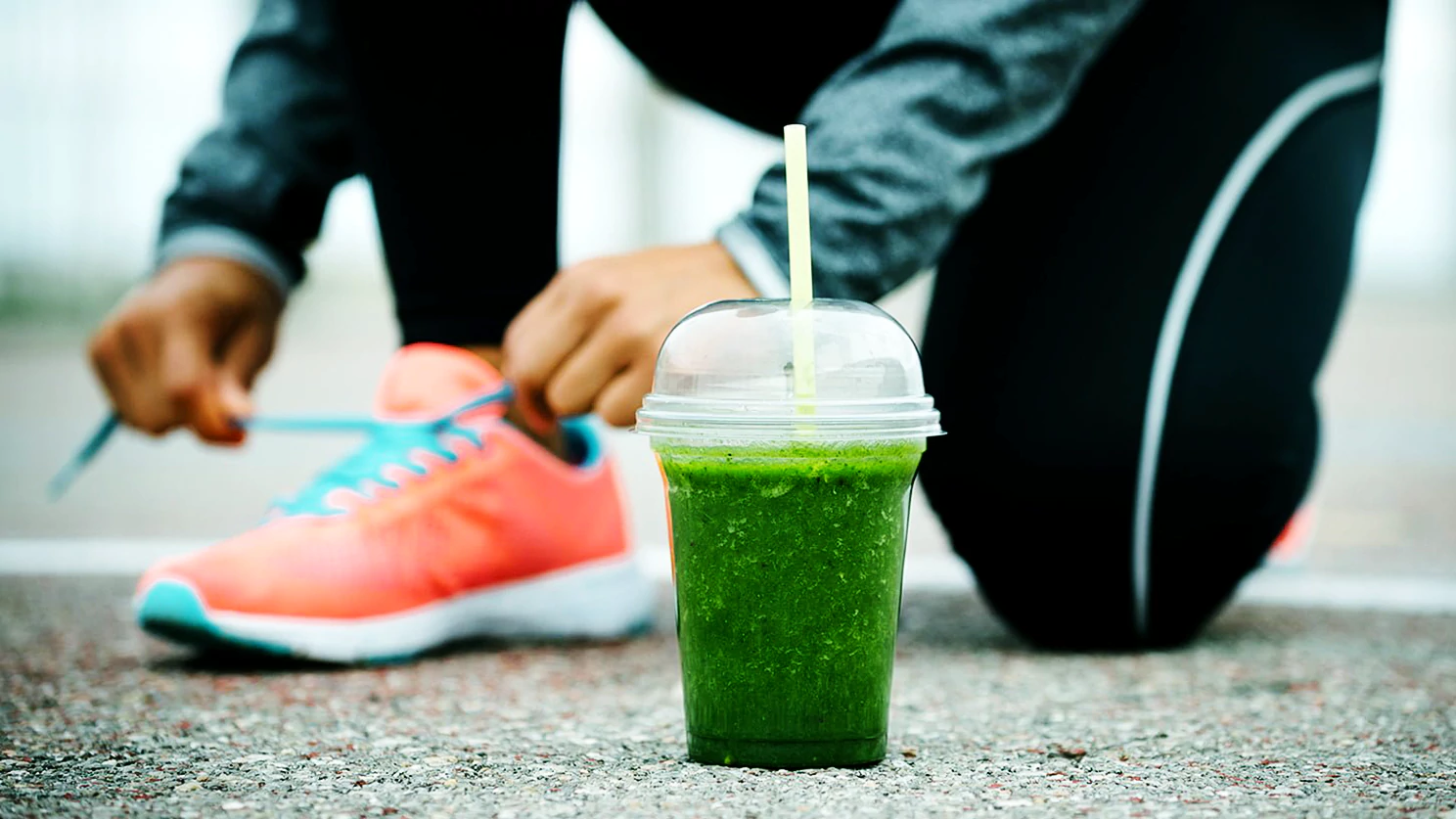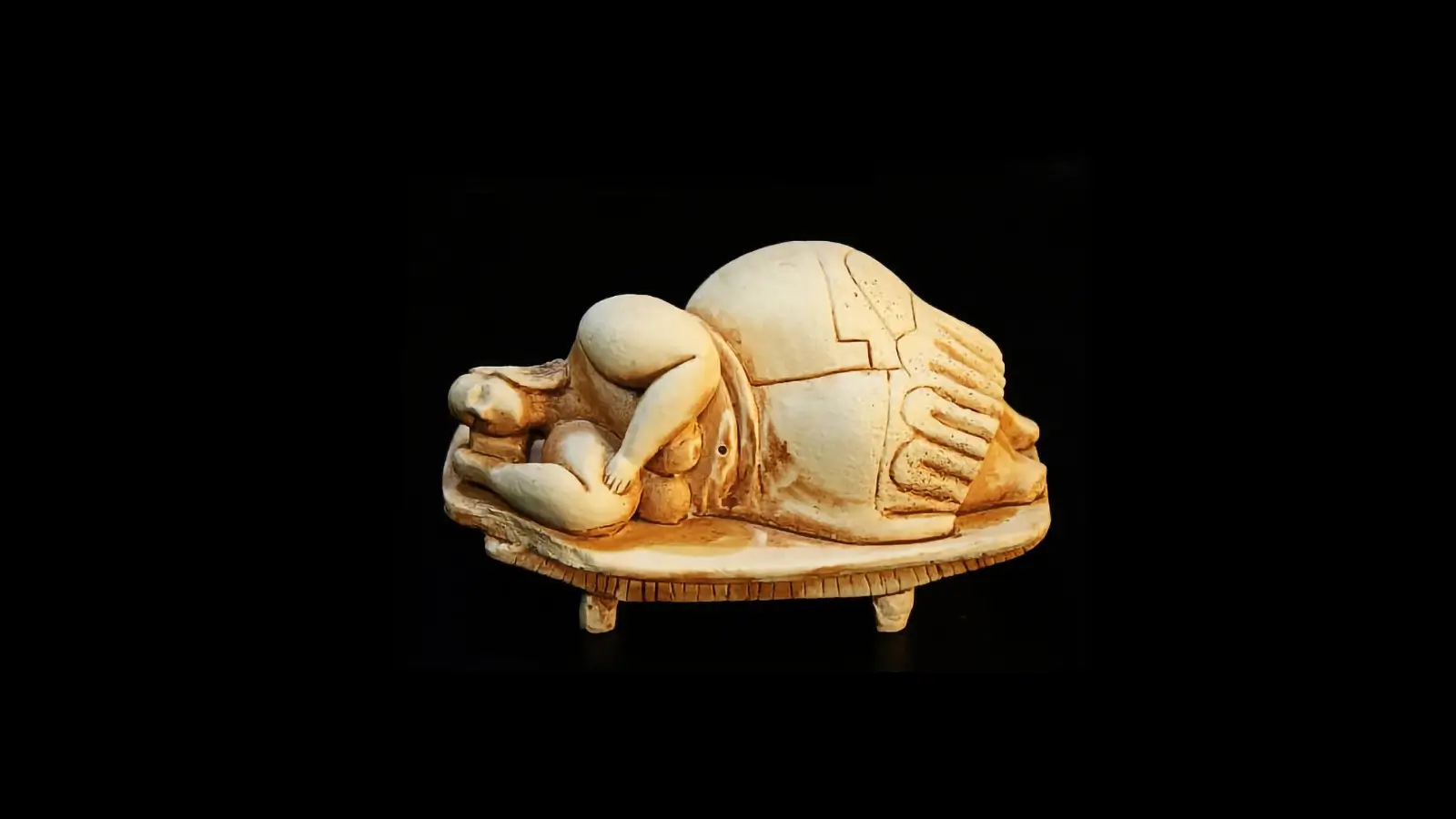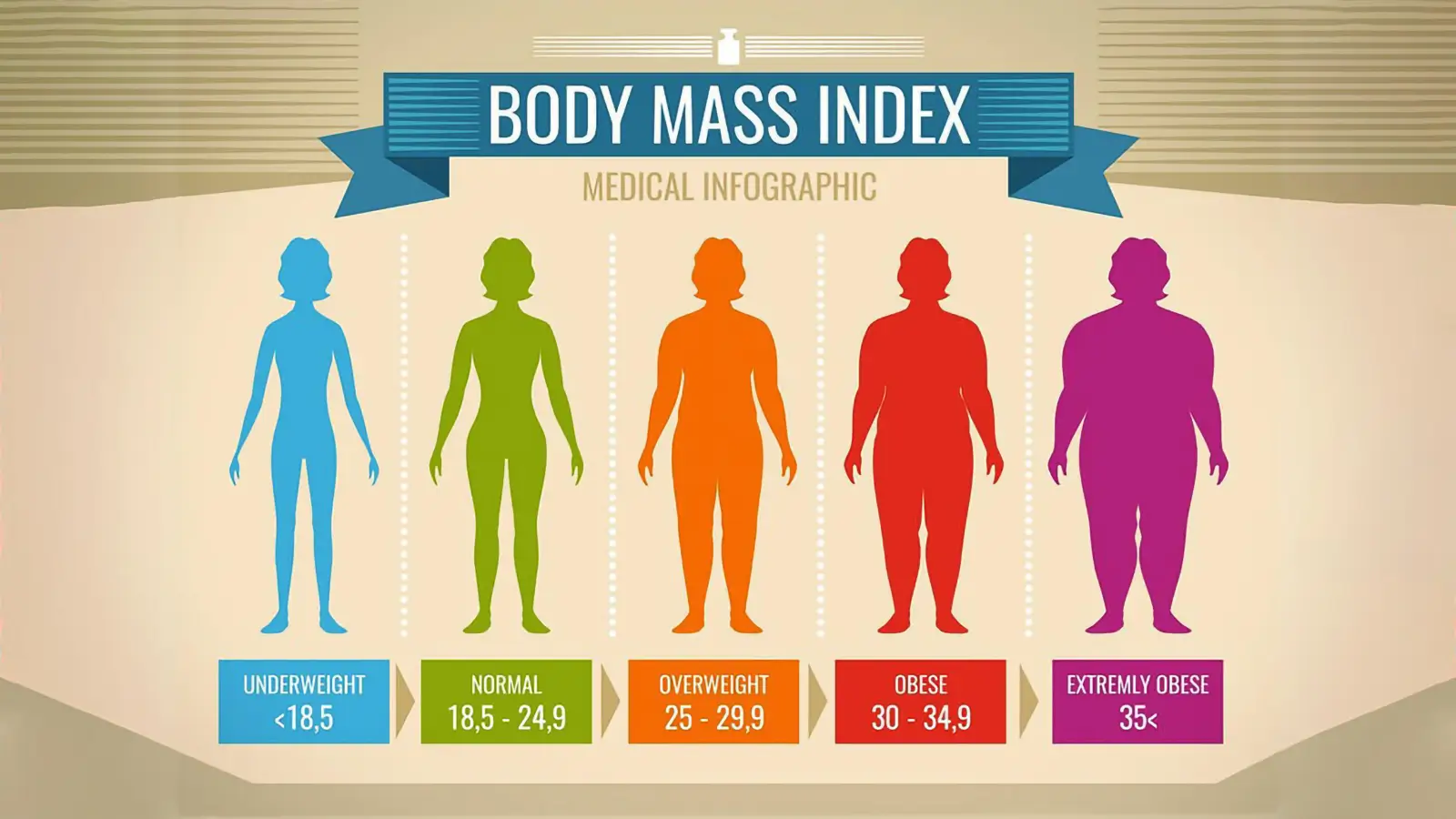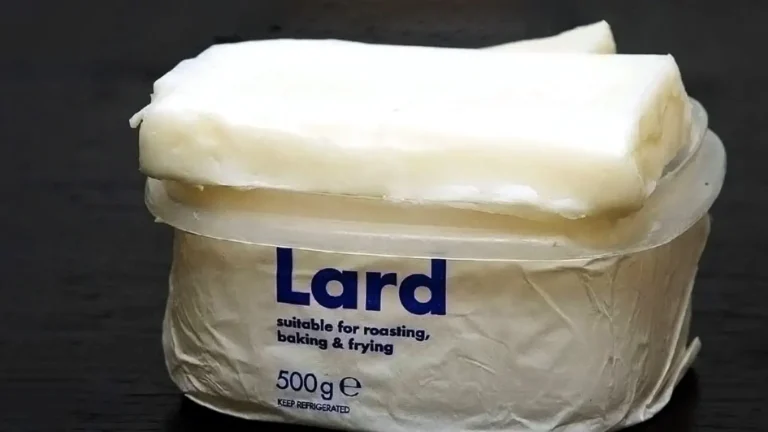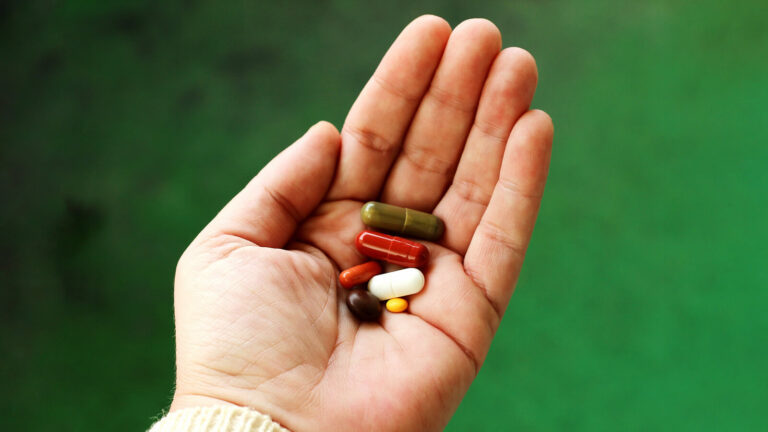Exercício - Por que exatamente o que é necessário?
Na comunidade de saúde, o exercício tem quase um status mítico como uma das melhores coisas que você pode fazer por si mesmo, exceto para evitar fumar.
Milos Pokimica
Escrito por: Milos Pokimica
Revisto Clinicamente Por: Dr. Xiùying Wáng, M.D.
Actualizado em 9 de Junho de 2023Todos sabemos que o treino ou exercício de qualquer tipo é saudável para nós. Os médicos gostam de falar muito sobre prevenção, e uma grande parte da prevenção irá resumir-se ao exercício, gestão de peso, e prevenção alimentar refinada. É tão importante que temos actividade física nas escolas. Temos diferentes tipos de desportos. Temos ligas profissionais de futebol e basquetebol para assistir nos tempos livres, mesmo os Jogos Olímpicos. Glorificamos os atletas profissionais como modelos a seguir pelos nossos filhos. Até o nosso cão fica agitado se não recebe a sua dose diária de caminhada.
Na saúde, o exercício em comunidade tem quase um estatuto mítico como uma das melhores coisas que se pode fazer por si próprio, excepto evitar o fumo. Na realidade, quando olhamos para dados científicos, a dieta é o assassino número um e a intervenção sanitária mais importante. Só depois da dieta, existem outros factores de risco associados à inactividade física e maus hábitos como fumar.
A crença de que a inactividade física é o maior problema de saúde pública do século XXI não é completamente verdadeira.
A inactividade física mal faz com que esteja entre as dez principais causas de morte no mundo. A dieta é a número um e fumar é a número dois. Isto não significa, contudo, que o exercício não seja importante. Apenas significa que há mudanças mais importantes no estilo de vida que estão a afectar a qualidade de vida de uma forma mais severa.
A dieta é absolutamente número um. O problema que temos é que os alimentos são uma substância viciante e os hábitos alimentares não podem ser tão facilmente alterados. As pessoas recusar-se-iam simplesmente a mudar o seu comportamento. O exercício é empurrado como um santo graal por essa única razão. As pessoas são viciadas em comida e o exercício ao contrário da dieta pode criar muito lucro, desde o desporto profissional até aos suplementos. Não há muito dinheiro para ser feito de cenouras.
Promoting a whole food plant-based diet is everything except a money-making machine. Big pharma is a big business and so is the supplement industry. Exercise is a cost-effective and proven way to reduce mortality. Cost-effective means it does not lower the profits of existing businesses and most importantly a way that people can accept. This doesn’t mean that it is not as important as a preventive measure. In real life, it will provide a substantial benefit. And yes we all should exercise.
Porquê?
Esta é a primeira pergunta que devemos saber. Bem, não é porque o exercício em si seja saudável. É uma experiência stressante, dolorosa e cheia de suor e a possibilidade de lesões que aumenta o stress oxidativo e leva à criação de danos radicais livres no ADN. Não existem espécies animais na natureza que gostem de "exercício". Não há nada de romântico na caça ou na procura de alimentos. Trata-se de uma necessidade existencial que é forçada. Quando exercitamos o que essencialmente estamos a fazer é que estamos a simular um ambiente em que os nossos antepassados evoluíram. Trata-se de uma forma de dor auto-infligida. Dor que só por si não é saudável e irá criar danos no DNA devido à produção excessiva de radicais livres devido ao aumento do consumo de oxigénio.
Se os radicais livres danificam o ADN e o exercício leva à criação de radicais livres, então como pode ser que a actividade física possa ser saudável?
It is because our hominin ancestors lived by foraging. That created evolutionary adaptations in our biology. Physical activity was an essential component of their survival. You do not forage, you do not find food, and you die. It is that simple. The only reason exercise is healthy is because in a million years of evolution our body adapted to it. Our body expects it as a normal part of life.
Quando não fazemos exercício estamos desequilibrados com a nossa fisiologia, e quando o fazemos, damos aos nossos corpos o que eles esperam. Quando vamos ao ginásio ou fazemos qualquer outro exercício como correr na passadeira, o que estamos a fazer é simular as condições no habitat dos nossos antepassados hominídeos.
When we look for scientific research about exercise, what will we find? Does exercise matter or it is just something to help us lose weight more rapidly? What we find is that individuals with low levels of physical activity are at higher risk of many different kinds of diseases like heart disease, cancer, Alzheimer’s disease, and also early death by any cause. Long before that, inactivity increase lower-back pain worsens arthritis symptoms and leads to anxiety. Exercise can help with lowering the risk of early death, high blood pressure, stroke, coronary heart disease, adverse blood lipid profile, type 2 diabetes, metabolic syndrome, colon cancer, breast cancer, depression, and can increase cognitive and mental health, sleep quality, immune system function and longevity.
Há um par de benefícios principais da actividade física. O primeiro e principal serão os seus efeitos sobre o sistema cardiovascular. É provável que esteja a fazer algum "cardio" no ginásio.
Quando nos exercitamos, o coração começa a contrair com força e frequência. Isso irá aumentar o fluxo sanguíneo através das artérias e permitir que os nossos músculos utilizem mais oxigénio. Um aumento do fluxo sanguíneo irá causar alterações subtis no sistema nervoso autónomo, que controla a contracção e relaxamento destes vasos. Esta adaptação leva a uma diminuição da pressão arterial, uma frequência cardíaca mais variável, o que significa a capacidade do coração de abrandar ou aumentar as contracções quando necessário, e uma frequência cardíaca em repouso mais baixa em geral, o que significa um aumento da eficácia do sistema cardiovascular com menos batimentos para bombear o sangue através do corpo. Todos os aspectos têm um impacto na redução das doenças cardiovasculares.
Exercise also lowers inflammation associated with the cardiovascular system. Exercise in research was able to cause around a 30 percent dip in C-reactive protein levels, a marker of inflammation. Thirty percent drop is about the same drop that statin (the cholesterol drug) is able to cause. It beefs up the body’s immune system and wards off cancer and other diseases.
One of the main benefits will also be an increase in insulin sensitivity. When someone runs, muscle contractions will increase the production of adenosine monophosphate-activated protein kinase (AMPK). This is an enzyme that promotes the breakdown of fats that can interfere with the cell’s glucose transporters. AMPK can help in preventing type 2 diabetes.
A investigação em ratos mostra que o exercício físico aumenta a BDNF (factor neurotrófico derivado do cérebro). A BDNF é um factor essencial na aprendizagem e na memória. A BDNF ajuda os ratos a lembrarem-se de como navegar através de labirintos, e uma actividade semelhante pode ser assumida nos humanos.
O exercício ajudará a manter a massa óssea e reduzirá o risco de osteoporose. Os ossos tornam-se mais fortes quando forçado a adaptar-se para suportar mais peso do que o habitual.
O Departamento de Saúde e Serviços Humanos (HHS) monitoriza este tipo de investigação e divulga periodicamente as suas Directrizes de Actividade Física para Americanos. As recomendações são as seguintes:
“Adults between the ages of 18 and 64 exercise moderately (walking) for at least two hours and 30 minutes or vigorously (running, swimming, or cycling ten mph or faster) for at least an hour and 15 minutes weekly”.
Isto é cerca de 11 minutos de corrida por dia na passadeira. Para as pessoas que não compreendem como ler este tipo de lançamento, a palavra-chave é, pelo menos, para. Quanto mais, melhor. Elas recomendam o que pensam que pode ser realizável. Quando olhamos para as suas tabelas da correlação entre o exercício e a morte prematura, tudo o que podemos ver é apenas uma queda linear constante.
Se fizermos 180 minutos de exercício por semana, teremos um risco 27% menor, mas se fizermos 420 minutos de exercício por semana teremos um risco 38,5% menor, e este tipo de correlação é encontrado em todos os estudos e revisões sistemáticas e meta-análises de estudos de coorte. Num estudo (Mok et al., 2019) they reviewed 22 studies that met inclusion criteria. A study containing 977,925 individuals (334,738 men and 643,187 women) and found that 2.5h/week (equivalent to 30min daily for 5 days a week) compared with no activity was correlated with a decrease in mortality risk of 19%, while 7h/week of moderate activity compared with no activity reduced the mortality risk by 24%.
A conclusão foi a seguinte:
"Ser fisicamente activo reduz o risco de mortalidade por todas as causas".
Passar de nenhuma actividade para uma pequena quantidade foi considerado como o mais significativo dos benefícios.
No entanto, isso não significa que, se estivermos activos, não haja qualquer benefício adicional. Mesmo com níveis elevados de benefícios de actividade ainda, os benefícios advêm da actividade adicional. Quanto mais e mais longo for o exercício, mais benefícios.
Referências:
- Mok, A., Khaw, K., Luben, R., Wareham, N. J., & Brage, S. (2019). Physical activity trajectories and mortality: population based cohort study. BMJ, l2323. https://doi.org/10.1136/bmj.l2323
- Arem, H., Moore, S. C., Patel, A., Hartge, P., Berrington de Gonzalez, A., Visvanathan, K., Campbell, P. T., Freedman, M., Weiderpass, E., Adami, H. O., Linet, M. S., Lee, I. M., & Matthews, C. E. (2015). Leisure time physical activity and mortality: a detailed pooled analysis of the dose-response relationship. JAMA medicina interna, 175(6), 959–967. https://doi.org/10.1001/jamainternmed.2015.0533
- Woodcock, J., Franco, O. H., Orsini, N., & Roberts, I. (2011). Non-vigorous physical activity and all-cause mortality: Systematic review and meta-analysis of cohort studies. International Journal of Epidemiology, 40(1), 121-138. https://doi.org/10.1093/ije/dyq104
Publicações Relacionadas
Você tem alguma dúvida sobre saúde e nutrição?
Eu adoraria ouvir de você e respondê-las em meu próximo post. Agradeço sua contribuição e opinião e espero ouvir de você em breve. Eu também convido você a siga-nos no Facebook, Instagram e Pinterest para mais conteúdos sobre dieta, nutrição e saúde. Pode deixar um comentário e ligar-se a outros entusiastas da saúde, partilhar as suas dicas e experiências e obter apoio e encorajamento da nossa equipa e comunidade.
Espero que este post tenha sido informativo e agradável para si e que esteja preparado para aplicar os conhecimentos que aprendeu. Se achou este post útil, por favor partilhá-lo com os seus amigos e familiares que também possam beneficiar com isso. Nunca se sabe quem poderá precisar de alguma orientação e apoio no seu percurso de saúde.
– Você Também Pode Gostar –

Aprender Sobre Nutrição
Milos Pokimica é médico de medicina natural, nutricionista clínico, escritor de saúde e nutrição médica, e conselheiro em ciências nutricionais. Autor da série de livros Go Vegan? Revisão de Ciênciaopera também o website de saúde natural GoVeganWay.com
Medical Disclaimer
GoVeganWay.com traz análises das pesquisas mais recentes sobre nutrição e saúde. As informações fornecidas representam a opinião pessoal do autor e não pretendem nem implicam substituir aconselhamento, diagnóstico ou tratamento médico profissional. As informações fornecidas são apenas para fins informativos e não se destinam a servir como substituto para consulta, diagnóstico e/ou tratamento médico de um médico ou profissional de saúde qualificado.NUNCA DESCONSIDERE o CONSELHO MÉDICO PROFISSIONAL OU adiar a BUSCA de TRATAMENTO MÉDICO por causa DE ALGO QUE TENHA LIDO OU ACESSADO por MEIO de GoVeganWay.com
NUNCA APLIQUE QUAISQUER MUDANÇAS de estilo de VIDA OU QUALQUER MUDANÇA COMO UMA CONSEQUÊNCIA DE ALGO QUE TENHA LIDO NO GoVeganWay.com ANTES de CONSULTORIA de LICENÇA MÉDICA.
No caso de uma emergência médica, ligue para o médico ou para o 911 imediatamente. GoVeganWay.com não recomenda ou endossa qualquer específicos, grupos, organizações, exames, médicos, produtos, procedimentos, opiniões ou outras informações que podem ser mencionadas dentro.
Sugestões do Editor –
Milos Pokimica é médico de medicina natural, nutricionista clínico, escritor de saúde e nutrição médica, e conselheiro em ciências nutricionais. Autor da série de livros Go Vegan? Revisão de Ciênciaopera também o website de saúde natural GoVeganWay.com
Artigos Mais Recentes -
Planta De Notícias Com Base Em
-
Homemade Bubble Tea
on Maio 6, 2025
-
Ella Mills Unveils Rebrand For Natural Food Brand Plants
on Maio 6, 2025
-
Tempeh And Apple Burgers
on Maio 6, 2025
-
‘Why I Love These Easy, One-Pot, Protein-Packed Vegan Dinners’
on Maio 6, 2025
-
Scientists Film Wild Chimpanzees Sharing Alcoholic Fruit
on Maio 6, 2025
-
7 Unusual Plant-Based Breakfasts To Try In 2025
on Maio 5, 2025
-
NYC Crowned Best US City For Vegans In 2025
on Maio 5, 2025
Superior De Saúde De Notícias — ScienceDaily
- Accelerating drug discovery with a single carbon atomon Maio 6, 2025
A research team has pioneered a groundbreaking method that could accelerate drug discovery and reduce pharmaceutical development costs. Their work introduces a safe, sustainable way to insert a single carbon atom into drug molecules at room temperature.
- Breakthrough discovery uses gut bacteria and AI to diagnose a chronic pain syndromeon Maio 6, 2025
Researchers have developed AI technology that can detect patterns in gut bacteria to identify complex regional pain syndrome (CRPS) with remarkable accuracy, potentially transforming how CRPS is diagnosed and treated.
- How AI tools can improve manufacturing worker safety, product qualityon Maio 6, 2025
Recent artificial intelligence advances have largely focused on text, but AI increasingly shows promise in other contexts, including manufacturing and the service industry. In these sectors, targeted AI improvements can improve product quality and worker safety, according to a new study.
- Most people say they want to know their risk for Alzheimer’s dementia, fewer follow throughon Maio 6, 2025
A new study examines the choices healthy research volunteers make when given the opportunity to learn their risk of developing Alzheimer’s disease dementia. The researchers found a large discrepancy between the percentage of participants who said they would like to learn their risk if such estimates became available and the percentage who followed through to learn those results when given the actual opportunity.
- Research advances on ‘displacing’ antibiotic resistance gene from bacteriaon Maio 6, 2025
Scientists have identified essential genetic code for a method called plasmid curing, which aims to ‘displace’ antibiotic resistance genes from bacteria.
- Social drinking also a well-worn path to alcohol use disorderon Maio 6, 2025
When picturing a ‘typical’ alcoholic, people tend to imagine a person drinking at home alone. But that focus overlooks the social origins of many serious alcohol problems.
- Parent coaching sparks major communication growth in infants with social and communication delayson Maio 6, 2025
A study found that targeted coaching for caregivers of infants as young as 8 months significantly enhances babies’ communication and cognitive development.
PubMed, #vegan-dieta –
- Dietary Adaptation of Non-Heme Iron Absorption in Vegans: A Controlled Trialon Maio 5, 2025
Non-heme iron, mainly from plant foods, is theoretically less bioavailable than heme iron from animal food, which might increase the risk of iron deficiency in vegans. This study aimed to evaluate acute changes in plasma iron levels following non-heme iron intake in vegans compared with omnivores and to explore the mechanisms regulating these changes. Twenty-seven participants (18-30 years old) were divided into vegans and omnivores. After baseline measurements (body composition, blood […]
- Vegan beware! Allergenic potential of legumeson Abril 30, 2025
CONCLUSION: The increased consumption of legumes in the context of a vegan diet is bringing a wider range of plant-based foods into focus, which may have potentially allergenic properties. An increase in allergic reactions to legumes is to be expected. Precise molecular IgE diagnostics are crucial to be able to assess the risk of severe reactions.
- Body and Fitness-related Shame Helps Explain the Association Between Internalized Weight Bias and Orthorexia Symptoms among North American Female Yoga Professionalson Abril 30, 2025
CONCLUSIONS: Findings contribute to the growing scholarship recognizing orthorexia’s links with harmful diet culture among yoga professionals potentially reflecting: 1) regulating internal body- and fitness-related shame stemming from IWB and 2) perceptions of modeling “positive” body image for students and clients who may be at risk. Results call for increased collaborative outreach efforts to identify appropriate interventions to effectively target these public health concerns within the…
- Desensitization for Vitamin B12 Hypersensitivity and How to Do Iton Abril 29, 2025
Vitamin B12 is the common name for a group of cobalamins, which are cobalt corrines. Cobalamins are water-soluble B vitamins. Vitamin B12, as a coenzyme of various enzymes, is an essential component of many key metabolic processes in the body. Vitamin B12 deficiency causes dysfunction of various organs and systems in the body, including the central nervous system. Humans, like other animals, are unable to synthesize cobalamin. This vitamin must be supplied with a balanced diet. The only […]
- Effects of lacto-vegetarian and vegan diets on glycemic responses and metabolite profiles in healthy adults: A randomized trial using continuous glucose monitoring and targeted metabolomicson Abril 29, 2025
CONCLUSIONS: Our pilot CGM data suggest a lacto-vegetarian diet may offer better glycemic control, potentially explained by our preliminary metabolomics findings. The increased Phe observed in the vegan group may be explained by a hypothetical mechanism in which higher glucose induces oxidative stress, whereas the increased C2 from dairy in the lacto-vegetarian group may protect against oxidative stress, contributing to lower glucose concentrations. However, larger, longer-term studies with […]
Postagens aleatórias –
Postagens em destaque –

Últimas do PubMed, #dieta baseada em vegetais –
- Association between the quality of plant-based diets and risk of thyroid dysfunctionpor Juanjuan Zhang on Maio 6, 2025
Background: Plant-based diets are generally considered to be associated with a decreased risk of several chronic diseases. However, there is limited prospective evidence on the association between plant-based diet quality and thyroid dysfunction (TD) risk. Therefore, we aimed to explore the longitudinal associations between plant-based diets and TD (encompassing hypothyroidism and hyperthyroidism) risk. Methods: A total of 199 382 TD-free participants were enrolled in the UK Biobank. The […]
- Dietary Adaptation of Non-Heme Iron Absorption in Vegans: A Controlled Trialpor Miguel López-Moreno on Maio 5, 2025
Non-heme iron, mainly from plant foods, is theoretically less bioavailable than heme iron from animal food, which might increase the risk of iron deficiency in vegans. This study aimed to evaluate acute changes in plasma iron levels following non-heme iron intake in vegans compared with omnivores and to explore the mechanisms regulating these changes. Twenty-seven participants (18-30 years old) were divided into vegans and omnivores. After baseline measurements (body composition, blood […]
- Effects of a Plant-Based Diet During the First Month of Feeding on Alevin Rainbow Trout (Oncorhynchus mykiss) in the Development of Tongue Sensory System Regulating Feeding Behaviorpor Maud Martinat on Maio 5, 2025
Taste perception is essential for animals to detect nutrients, providing critical dietary information necessary for growth and survival. Since the early growth performance of alevin rainbow trout (Oncorhynchus mykiss) can be affected by food intake influenced by terrestrial ingredients without fish meal and fish oil, our study aimed to evaluate the role of taste receptors in nutrient detection and the associated signaling pathways leading to central nervous system activation in the regulation […]
- Feasibility and Efficacy of a Plant-Based Nutrition Intervention for Type 2 Diabetes in a Primary Care Settingpor Vanita Rahman on Maio 5, 2025
Objective: To determine the feasibility and efficacy of a plant-based nutrition intervention for type 2 diabetes in a primary care setting. Methods: Adults (n = 76) with type 2 diabetes were enrolled in a self-paid, online nutrition intervention program between August 2023 and September 2024. All participants were advised to attend weekly group classes and follow a plant-based diet for 12 weeks. Body weight, medication usage, HbA(1c,) and cholesterol levels were assessed at baseline and at 12…
- Lycopene Supplemented Mediterranean Diet Ameliorates Experimental Autoimmune Encephalomyelitis (EAE) in Mice and Changes Intestinal Microbiomepor Tutku Atuk Kahraman on Maio 5, 2025
This study aimed to determine the effects of the Mediterranean diet (MD) and lycopene on the development of EAE and on inflammatory markers. In the 43-day study, 72 female C57BL/6 mice were randomly divided into eight groups according to whether they were EAE or naive (control) mice, fed a Western diet or a MD, and whether they received lycopene. During the study, mice were fed ad libitum, and lycopene groups were given 10 mg/kg/day lycopene per mouse every other day for 28 days in oral […]
- Regulation of apocarotenoids for quality improvement and biofortification of horticultural cropspor Lihong Liu on Maio 4, 2025
BACKGROUND: Agro-food production and consumption impact climate change and human health. Bioactive secondary metabolites in horticulture crops make them an indispensable part of environmentally sustainable and healthy diet. Among them, apocarotenoids from carotenoid degradation are promising in promoting a preference for plant-based foods over other metabolites.
